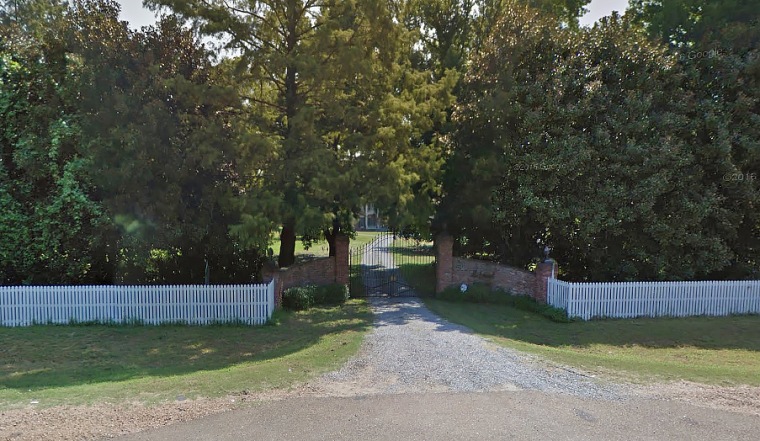Airbnb on Monday removed listings where enslaved people in the U.S. once lived following a viral TikTok video slamming a Mississippi property described as a “slave cabin.”
“Properties that formerly housed the enslaved have no place on Airbnb,” the property-rental company said in a statement to NBC News. ”We apologize for any trauma or grief created by the presence of this listing, and others like it, and that we did not act sooner to address this issue.”
Airbnb added that the company is working with experts to develop new policies to address other properties associated with slavery.
The property at the forefront of the controversy is the Panther Burn Cottage at the Belmont Plantation in Greenville, Mississippi.
It is no longer listed on the site.

Wynton Yates, a Black lawyer from New Orleans, posted a TikTok about the listing Friday, saying “How is this okay in somebody’s mind to rent this out? A place where human beings were kept as slaves, rent this out as a bed and breakfast?”
He shared screenshots of the listing, displaying the small wood cabin with a bedroom and bathroom, dwarfed by the nearby sprawling mainhouse on the property.
The Panther Burn Cabin is “an 1830s slave cabin from the extant Panther Burn Plantation to the south of Belmont. It has also been used as a tenant sharecroppers cabin and a medical office for local farmers and their families to visit the plantation doctor,” according to a screenshot of the description Yates posted.
The listing had 68 reviews and a 4.97 rating, his screenshots showed.
Yates explained in his video that the listing failed to recognize its history of slavery.
“Maybe you’re thinking, ‘Okay maybe this will give people insight into how enslaved people had to live, their living conditions.’ No, not at all. Clawfoot tub, running water, tile, nice lighting fixtures, water, towels, dresser,” he said.
“The history of slavery in this country is constantly denied and now it’s being mocked by being turned into a luxurious vacation spot,” he continued.
Yates said his brother’s friend first found the listing when looking for an Airbnb in the area. Upon seeing it, Yates felt compelled to call the listing out.
“I was just dumbfounded when I looked at it at first, I was like this can’t be real,” Yates told NBC News.
His video raked in over 443,000 likes and gathered over 16,500 comments.
“Turn these locations into memorials where people can visit & actually learn about (sic) the horrific actions. Like Holocaust memorials,” one user wrote.
Brad Hauser, who became the owner of The Belmont three weeks ago, said it was advertised as a slave cabin under the previous owner.
“I apologize for the decision to provide our guests a stay at ‘the slave quarters’ behind the 1857 antebellum home that is now a bed and breakfast. I also apologize for insulting African Americans whose ancestors were slaves,” he said in a statement to NBC News.
Hauser added the small wood cottage was obtained from an owner in Sharkey County, Mississippi, and it wasn’t part of any plantation originally. The original owner of the building said it was used as a doctor’s office and was not old enough to have housed slaves, Hauser said.
When Hauser first inquired about the cabin behind the main house, he was told slaves did not previously live there and it wasn’t being advertised as such, he said. Yet, it was on Airbnb.
Hauser said he’ll provide guests with a “historically accurate portrayal of life” of The Belmont’s history, its original owners and the 80 or so slaves they purchased “who had no control over their own lives.” He also vowed to find experts to learn more about everyone who passed through The Belmont, including enslaved people or free people of color.
“I intend to do all I can to right a terrible wrong and, hopefully, regain advertising on AirBnB so The Belmont can contribute to the most urgent demand for truth telling about the history of not only the South but the entire nation,” Hauser said.
Yates said learning that enslaved people didn’t live in the cottage makes the situation only worse.
“If this was actually not a slave cabin, that does not make it better in any way because it is the further romanticizing of slavery. That makes this even more horrendous that you think slavery is a selling point,” Yates said.
He said he grew up in the South and saw his white friends have weddings and gatherings at plantations, often failing to recognize the deeper history and implications of those sites.
“Black Americans have looked at that and said, that’s disrespectful and they’ve gone unheard because it’s a booming market for weddings and events.”
He urged companies like Airbnb to have better representation at the table to recognize these policy issues earlier on. He also called on other property owners of places that formerly housed slaves to better memorize its history.
“Words are not enough. We’ve heard, ‘We’re sorry. We didn’t know. We’ll change our policies.’ It’s time to see these companies step up and say, ‘We recognize what you’re saying. We are actively going to affect some policies that will affect change,’ so that these types of things don’t happen again,” Yates said.
“It’s not lost on me that this exists everywhere. (These properties) should be a catalyst for Black Americans to be able to reconnect to the histories and their heritage,” he added. “As we know, in America, most Black families do not know their real family history because of slavery. Slaves were bought, sold, traded, moved from plantation to plantation, families broken up, children stripped away and moved around.”
Source: | This article originally belongs to Nbcnews.com









